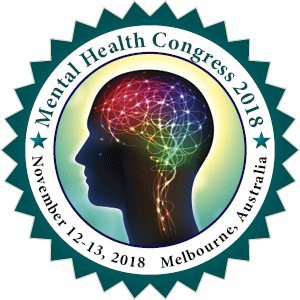
Jerome Ndolesha
Dual Diagnosis Specialist, UK
Title: An exploratory qualitative research on the perceptions of dual diagnosis among the bangladeshi community in the london borough of tower hamlets
Biography
Biography: Jerome Ndolesha
Abstract
Confusingly, dual diagnosis describes innumerable physical, psychological/developmental co-morbidity. However, the National Institute for Health and Clinical Excellence defines the phenomenon as the coexistence of severe mental illness and licit/illicit psychoactive substance misuse, embracing patients who meet the criteria of the diagnostic and statistical manual of mental disorders, fourth edition (2000) (DSM-IV) and the International Statistical Classification of Diseases and Related Health Problems, 10th Revision (2016) (ICD-10). Nevertheless, since dual diagnosis is not a diagnosis in itself, inconsistent drug/alcohol misuse operational definitions and diagnostic classifications exist within the DSM-IV (and DSM-V) and the ICD-10. Such uncertainties contribute to making dual diagnosis a significant global clinical problem, often closely associated with increased risk of socio-economic exclusion, serious physical illness, self-harm, frequent re-hospitalization, poor treatment outcomes suicide/premature death, staff difficulties and management problems. Not only is ethnicity closely associated with dual diagnosis it also complicates the latter even more, due to different negative perceptions, meanings and values attributed to both mental health illness and substance misuse. Often manifested in poor access to services, evidence suggests that this situation is challenging and alarmingly complicates patients’ care pathways. Despite this phenomenon's wide recognition as a critical health concern, services are insufficiently prepared to support patients from ethnic minorities. This research provides an opportunity to explore dual diagnosis from ethnicity's perspective, with special reference to the Bangladeshi community of the London borough of tower hamlets, as a case study. Although the borough is predominantly Bangladeshi, there is a dearth in research exploring dual diagnosis from a Bengali perspective. However, in many comparative studies, South Asian communities are erroneously classed as a homogeneous group, hence creating challenges in ascertaining the level of associated problems, whereas services have constantly struggled to meet the needs of this population. This study will offer an opportunity to look at barriers and constraints to dual diagnosis accessing services and how they could be overcome.

